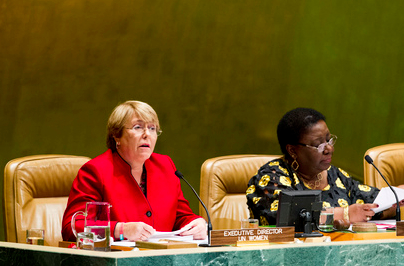By Janet Ekstract
ISTANBUL- When the UN Human Rights Chief Michelle Bachelet is repeatedly refused an opportunity to visit the Xinjiang region of China, the obvious is apparent – China has something to hide. The Xinjiang region has long been home to the ethnic Uyghur population who under Chinese President Xi Jinping have not enjoyed the same freedoms they had under previous Chinese rule.
Even though UN Secretary-General Antonio Guterres told leaders in Beijing that he expects them to allow Bachelet to make what he calls a “credible” visit to China including the Xinjiang region – the Chinese state news agency in its reporting made no mention of that request. Guterres spoke to Chinese President Xi Jinping and Foreign Minister Wang Yi on the sidelines of the Beijing Winter Olympics on Saturday. And this is precisely the problem: UN heads need to take a tougher stance on China’s elephant in the room – alleged widespread human rights abuses against one million Muslim minorities incarcerated in what are labeled “re-education camps” by Chinese officials.
The U.S: and lawmakers in five other Western countries have labeled China’s behavior toward Uyghurs as “genocide.” It should be noted that reports about heinous abuses by the Chinese government come from credible eyewitnesses who themselves have escaped China and whose words are documented by credible mainstream media outlets. Abuses that have been reported include forced sterilization of Uyghur women, torture, forced disappearances, forced labor, kidnappings and much more. Human rights campaigners have been vociferous in their documentation or such reports as well as reports that Uyghurs are being used as forced labor to produce clothes for a number of popular retail stores who have refused shipments after this was discovered.
A UN report on human rights in Xinjiang is expected to be released after the Beijing Games which activists and lawmakers have been eagerly anticipating. In an interesting twist, Hong Kong’s South China Morning Post newspaper indicated that Beijing did decide to agree to a visit by Bachelet to Xinjiang and implied that in exchange, it expected Bachelet’s office to hold off publishing the report. Here it goes again, who controls who and what. This is the ‘let’s make a deal’ mentality so often employed by authoritarian governments. Then one must ask this question: What is the guarantee that when Bachelet finally visits Xinjiang that she actually sees what is really going on? The answer is obvious – it is highly unlikely. The other question to consider is why should Bachelet be beholden to the Chinese and hold off on publishing her report?
World order and dealing with narcissistic authoritarians is a delicate balance, like walking a tightrope and you better be well-trained and prepared for any eventualities. A UN statement said that at the secretary-general’s meeting with Xi, Guterres “expressed the wish for enhanced cooperation between the United Nations and the People’s Republic of China in all the pillars of the Organization’s work – peace and security, sustainable development, including climate change and biodiversity, and human rights.”
There’s just one tiny problem with the UN secretary-general’s wish: China is THE country that America and many other countries depend on for production of a plethora of products. It is precisely because of this power position that China wields that it can demand the narrative it desires the world to see and know about Xinjiang. And that leaves the UN right back where it started: in nomans land with China




